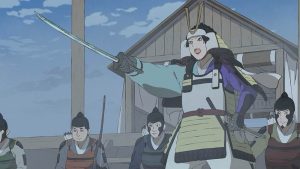 In all my time writing for LiA, this may be the most futile post (certainly series review) I’ve written. I really should just say “please, in the name of all that is holy and decent, read the book” and leave it at that. There’s no way I can make anyone who hasn’t done so understand why this series – especially the finale – fills me with nothing but despair. It so utterly fails the source material in every way that matters that it can scarcely be called an adaptation – which wouldn’t be an issue if it didn’t call itself an adaptation. But it does, so it can be held to no lesser standard.
In all my time writing for LiA, this may be the most futile post (certainly series review) I’ve written. I really should just say “please, in the name of all that is holy and decent, read the book” and leave it at that. There’s no way I can make anyone who hasn’t done so understand why this series – especially the finale – fills me with nothing but despair. It so utterly fails the source material in every way that matters that it can scarcely be called an adaptation – which wouldn’t be an issue if it didn’t call itself an adaptation. But it does, so it can be held to no lesser standard.
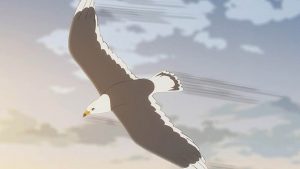 I understand that this is pointless. I even understand why a lot of people are going to think Heike Monogatari the anime was very good. But I can’t help plead the case for the original, because it deserves at least that much. There’s so much that was wrong here I hardly know where to start. Making Tokuko some sort of sainted anime model of feminine strength and perfection. Totally missing the point of her arc’s conclusion. Totally missing the point of the conclusion, period (both materially and philosophically). Turning important characters into caricatures, props to move the plot along. The entire stupid magic eye thing, which grated on me more every time I saw it. That would be the preface to volume one (of a lengthy series) of works on what this anime straight-up butchered.
I understand that this is pointless. I even understand why a lot of people are going to think Heike Monogatari the anime was very good. But I can’t help plead the case for the original, because it deserves at least that much. There’s so much that was wrong here I hardly know where to start. Making Tokuko some sort of sainted anime model of feminine strength and perfection. Totally missing the point of her arc’s conclusion. Totally missing the point of the conclusion, period (both materially and philosophically). Turning important characters into caricatures, props to move the plot along. The entire stupid magic eye thing, which grated on me more every time I saw it. That would be the preface to volume one (of a lengthy series) of works on what this anime straight-up butchered.
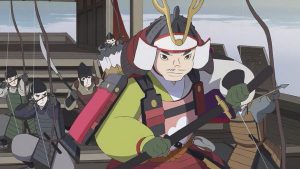 The salt in the wound for me, though – the cherry on top of the stick in the eye – was that it completely left out the entire final part of the book. The best part, the most gut-wrenching part of the entire story. Frankly, maybe the most gut-wrenching part of any story, at least that I’ve read or seen. I don’t think I’ve ever been as utterly riveted and emotionally devastated by anything I’ve read in any book, fact or fiction. It’s this final section that frames the entire Heike Monogatari in terms of the Buddhist parable it is – gives it meaning and context. But hey – we’re skipping that. Gotta save time for the original character searching for her mother arc.
The salt in the wound for me, though – the cherry on top of the stick in the eye – was that it completely left out the entire final part of the book. The best part, the most gut-wrenching part of the entire story. Frankly, maybe the most gut-wrenching part of any story, at least that I’ve read or seen. I don’t think I’ve ever been as utterly riveted and emotionally devastated by anything I’ve read in any book, fact or fiction. It’s this final section that frames the entire Heike Monogatari in terms of the Buddhist parable it is – gives it meaning and context. But hey – we’re skipping that. Gotta save time for the original character searching for her mother arc.
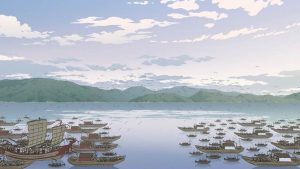 What I can try to take from this as a positive is that at least a few people are going to read the book after this series – I know, because they’ve told me so. But even that solace is tempered by the fact that there are surely a lot of people who will never read it because they’ll think “I don’t have to, I know the story now.” So even there, I can’t say for sure if anything positive is going to come out of this show’s existence – who knows?
What I can try to take from this as a positive is that at least a few people are going to read the book after this series – I know, because they’ve told me so. But even that solace is tempered by the fact that there are surely a lot of people who will never read it because they’ll think “I don’t have to, I know the story now.” So even there, I can’t say for sure if anything positive is going to come out of this show’s existence – who knows?
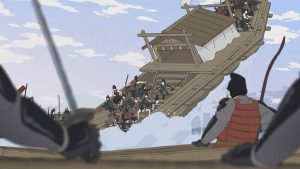 That’s all I got, and even that was too much, I know – no good can come out of my expressing my outrage. Screaming into the void feels good when you do it, but it doesn’t really accomplish a lot. I’ll just close by saying this – I cast no judgements on anyone for their feelings about this show, positive or negative. If I didn’t know the material, I might very well have thought it was quite good. But if you did enjoy it – and against the run of play, I sincerely hope you did – please understand that it offered only the barest minimum taste of what Heike Monogatari truly is. And if you want to experience it in its full splendor and glory, well – there’s only one way you’d be able to do that.
That’s all I got, and even that was too much, I know – no good can come out of my expressing my outrage. Screaming into the void feels good when you do it, but it doesn’t really accomplish a lot. I’ll just close by saying this – I cast no judgements on anyone for their feelings about this show, positive or negative. If I didn’t know the material, I might very well have thought it was quite good. But if you did enjoy it – and against the run of play, I sincerely hope you did – please understand that it offered only the barest minimum taste of what Heike Monogatari truly is. And if you want to experience it in its full splendor and glory, well – there’s only one way you’d be able to do that.


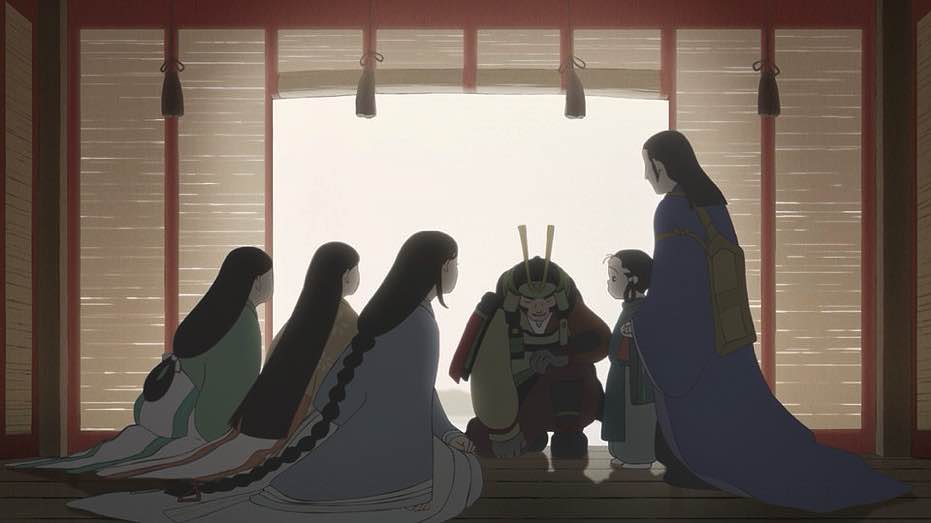
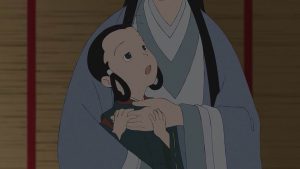
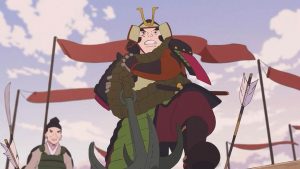
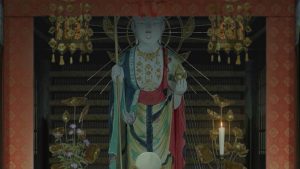
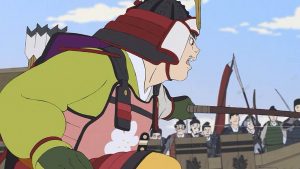
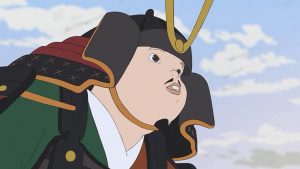
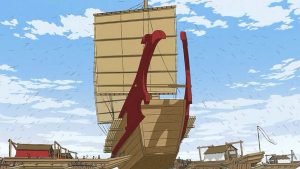
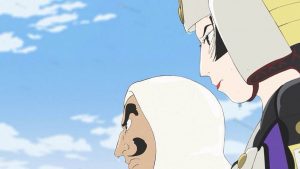
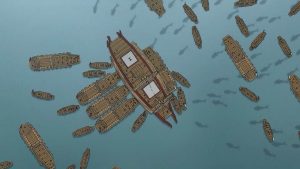
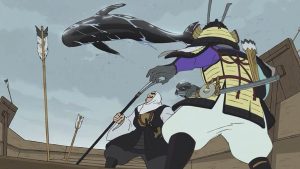
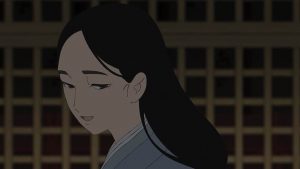
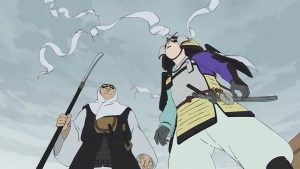
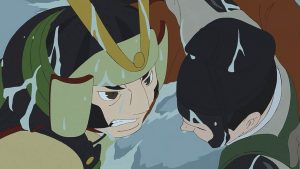
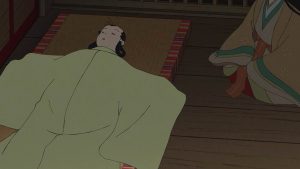
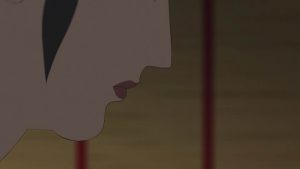
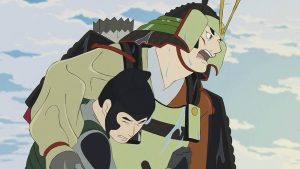
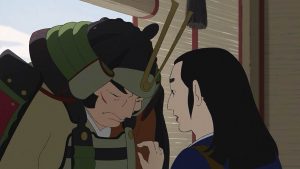
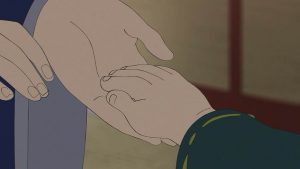
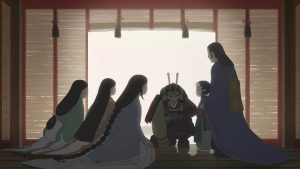
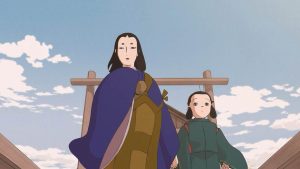
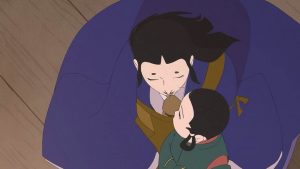

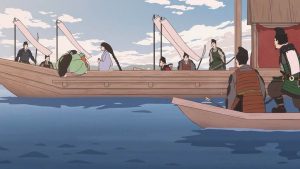
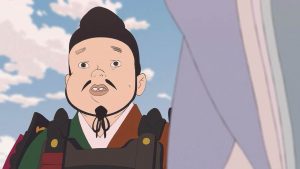
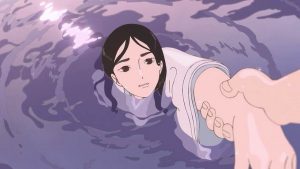
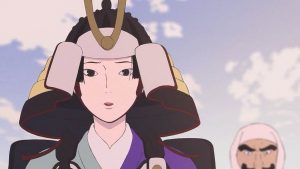
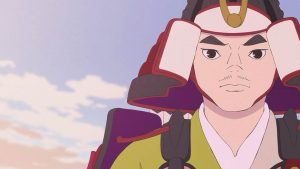
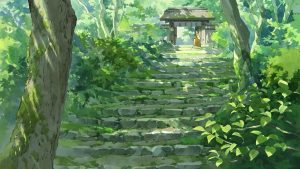
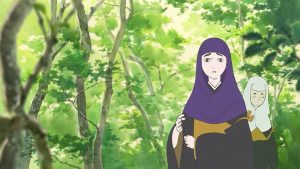
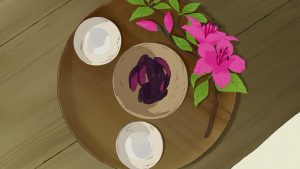
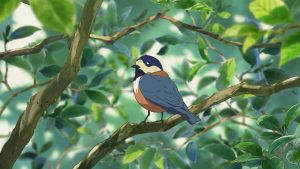
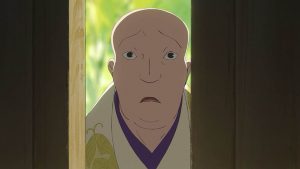
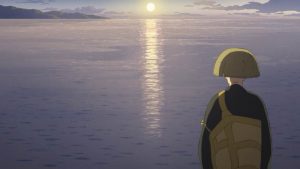
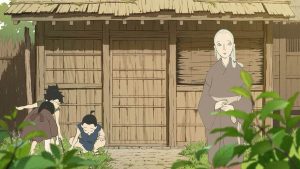
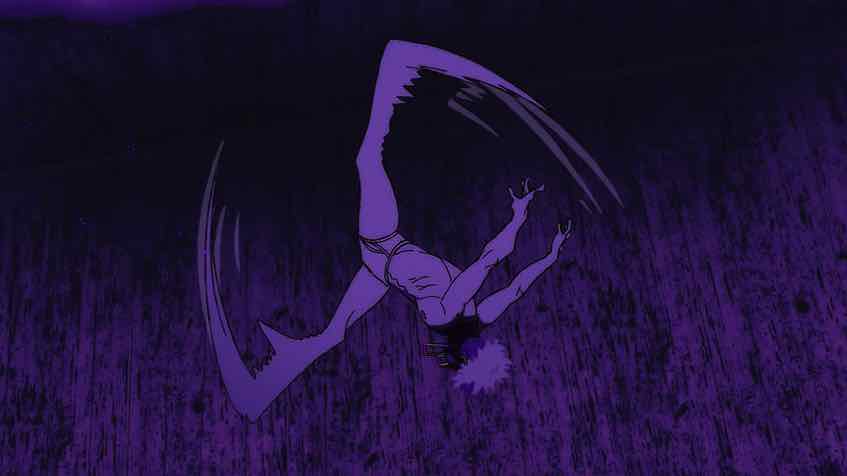
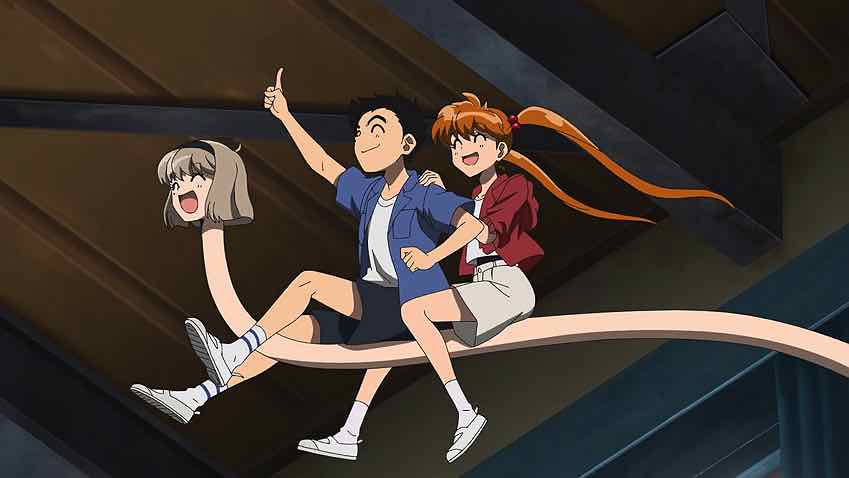
Armitage
November 25, 2021 at 11:37 pmI did stop watching this adaptation halfway through in order to read the book instead. So, while I am fairly certain the whole series did turn out to be a disappointment quite like the literal meaning of the Macbeth quote you have used as caption for this post, I am hoping the original book turns out to be as poetic as the symbolic meaning of said quote 🙂
Guardian Enzo
November 26, 2021 at 6:37 amTBH I quoted the Bard there as a reflection of my post, not the series, but fully conscious it could be taken either way…
I can’t say how you’ll view the book, though obviously it was all that and more for me. I can say that it pleases me greatly to hear another viewer say they plan to read it!
gedata
November 26, 2021 at 4:11 amI can’t help but wonder how these posts would’ve turned out if you didn’t have such a difficult frame of reference to fit in. I understand however, manga fans go through this kind of stuff on a regular basis. but this time it’s for a 14th century epic chronicle.
I’m of the opinion that if you need to read the source material to understand why an adaptation is bad, then it isn’t really a bad adaptation. Different, but not bad, at least not if you’re willing to engage with it on it’s own terms. For as much as this anime is purported to have left out, I at the very least had no issue in following it’s narrative and tracing the paths of each character arc to their reasonable conclusions, so on that level it certainly succeeds.
Also, funnily enough Biwa swore she would witness their story, yet she sat in the emperor boat’s shed for almost the entire duration of the battle, barely saw a glimpse and everyone who could have described it to her killed themselves
Guardian Enzo
November 26, 2021 at 6:40 amThe whole Biwa construct was LN-caliber contrived and dumb for me, right down to the final nail that you refer to.
I can’t say how it would have turned out for me had I not read the book. I’m totally unqualified to judge the show as anything but an adaptation and have made no claims to the contrary.
gedata
November 26, 2021 at 11:15 amTo me, Biwa just felt like kind of a benign element at most after she settled into the background besides sign posting upcoming tragedies that she couldn’t do anything to stop. I also agree that time spent on her sub plot felt too insubstantial to justify her inclusion, there’s only so much you can do with a main character whose role in the actual plot is filler for all intents and purposes. I didn’t always feel this way considering how much the opening episodes frame her as the POV character. but it wasn’t long before the scope of the narrative outgrew her.
Guardian Enzo
November 26, 2021 at 3:12 pmWhich was inevitable. No matter how much Yamada and Yoshida’s choices diminished it, the original is so majestic and emotionally sweeping that a shadow of that survived. And that shadow was still big enough to dwarf the original characters and blind alleys.
Raikou
November 26, 2021 at 6:26 amOne anime I had high expectation for this season and it was utterly disappointing.
This is probably one of the candidate for most disappointing anime of the year.
Enzo, as per your suggestion, I’m going to look for the book.
Guardian Enzo
November 26, 2021 at 6:41 amSuperb news! I recommend McCullough because it should be easier to find than Sadler. But if you’re a huge fan of Homer, Tyler is always an option…
Frix
November 26, 2021 at 1:22 pmI think it’s impossible to adapt the whole story in 11 chapters. I mean, since the beginning all the readers should try to understand that it’s not a going be like the book. At least, I saw in that way.
And saying that, I tried to see it like another version. At the end, the whole story completes and tbh it was good. Anyway, I understand your anger and disappointment but I think your expectations were really high.
Marty
November 26, 2021 at 5:47 pmFrom what I understand, it feels as if this adaptation told a mediocre to inoffensively Ok story. The problem is that said story is an adaptation of an EXCELLENT source material, which makes it a severe downgrade.
Collectr
November 26, 2021 at 10:50 pmNow having both McCullough AND Tyler, I understand what the latter was trying to do. Heike Monogatari is not just a text; it is (or was) an oral performance piece. McCullough translates the text, and her introduction provides a masterful summary of the performing tradition. Tyler tries (how successfully, I leave you to judge) to provide some sense of the performance, by using differing modes of English (not Japanese) prose and poetry, from straight text to Homeric verse, for the various oral styles. His version reminds me of Steven Vincent Benet’s masterful (and now totally neglected) epic of the American Civil War, John Brown’s Body. It too used every resource of English writing style – straight prose, free verse, blank verse, rhyming couplets – to convey different parts of the story as well as different charcters. It’s possible to hear the adaptation of that approach to (English) performing style in a very rare recording of a 1950s staged reading.
tl;dr This series is a cluster****; Biwa is a pandering homage to the Heike Monogatari performance tradition. ‘Nuff said.
Off topic: What’s your opinion of the 11-episode 2009 anime adaptation of Genji Monogatari, the other great classic of Japanese literature? And which translation do you like for that work?
Guardian Enzo
November 26, 2021 at 11:31 pmLast question first – I wouldn’t know where to begin. I don’t revere Genji Monogatari nearly as much as Heike Monogatari (I actually prefer The Pillow Book), though its historical importance is undeniable. And there are quite a few more translations available, anyway, as far as I know. I actually haven’t seen the 2009 series but by reputation it isn’t great.
I think your assessment of McCullough and Tyler is pretty fair. I just find Tyler’s attempt to be a bit forced and a bit pompous – I get what he’s trying to do and some folks love it, but a written text is not an oral performance and I prefer McCullough’s more restrained approach.
AG
November 27, 2021 at 1:51 amIf the consistent issue is the swaths of material left out, I’m curious as to how you might have approached 11 episodes of content. Try to find an early stopping point/single generation, and craft around just that?
Guardian Enzo
November 27, 2021 at 8:44 amWe’re pretty close to the “why bother” point at 11 episodes in my opinion. I most certainly wouldn’t have wasted almost half of that limited screen time on original content that does nothing to communicate either the letter or spirit of the source material.
Jon
August 5, 2022 at 11:24 pmI doubt you’ll probably read this as it’s quite some time after broadcast, but I would be genuinely interested to know what made this adaptation of Heike Monogatari so ‘unfaithful’ in your eyes, as the handful of reviews of yours I’ve read, whilst mentioning certain differences in characterisation or the omission of certain details, doesn’t really address why exactly you think this anime is unfaithful in a bigger picture way at least; that more philosophical and thematic angle which makes this anime sound like almost a bastardisation of the original text. Saying one thing and actually presenting thought-out analysis to back up what you’re claiming are two very different things!
I have yet to read Heike Monogatari myself (it’s been on my shelf for years, but its size and archaic style has always been a little intimidating in the time required to read it), so I can’t speak to this question of adaptation in the same way you can, but all I’ll say is that based on what I do know of the events of the Genpei War from my studies of Japanese history, I thought this anime was a very authentic take on a historical story that has been dramatised in such a piece of undoubtedly classic literature like Heike Monogatari. Obviously, in a limited 11-episode run certain details or even specific events and nuances of various figures/characters, such as the Minamoto, are either condensed, omitted or given shorter shrift compared to the focus on the Heike, and perhaps even portrayed in ways antithetical to their original versions – for instance, Yoritomo, just from what I’ve read in history was, certainly more cunning than is given credit in this show, but then again Hojo Masako, his wife, was also one very formidable and capable political player, so maybe there is more to that relationship than I’ve considered before.
Anyway, one can certainly argue that a story on this scale and complexity requires a series of an equal breadth to do it full justice – no arguments there – but all that being said, what is here, despite the limited confines, was nonetheless a very effective and moving work of artistic interpretation of a classic story as far as I could tell. I may not have read Heike Monogatari itself, but I am at least familiar with its general contours, events and characters, if not all their depths – and it is to this question of depths I’d be interested to hear from you about.
Still, in combination with some of the best cinematography and art design I’ve seen in an anime series in quite some time, the overall focus on the tragic spirit and impermanent wistfulness of the original tale (as I understand it) had great emotional resonance for me, those final five minutes possessing an almost transcendent quality to them even. Heike Monogatari is (though you might think differently) a work of tragedy first and foremost – not in the sense that the Heike were the ‘good guys who lost’ but rather in the sense that a great and mighty clan was brought so low and destroyed, and in that is embodied the Buddhistic teachings on the transient nature of all things, even the most seemingly immovable and intransigent forces at work in the human round of suffering.
Such a fate of course came about in part through the arrogance, however cunning and formidable, of clan head Kiyomori (whom I did not take in the same buffoonish way as you), and his sons’ brutal actions in the face of adversity, a brutality that was also fated by the very turning of the winds, which on several occasions quite literally (and metaphorically) alter the course of events against the Heike’s favour. Two such major examples were of course the uncontrollable burning of Nara when the wind catches the flames, and during the fateful battle of Dan-no-Ura when the winds and currents both turned against the Heike fleet in the straits of Shimonoseki. This is a story that embodies the inescapability of that old adage – ‘the higher you rise, the harder you fall’. This to me – admittedly looking from the outside – seems to be the spirit of the original work, one the anime captured beautifully and powerfully, but if I’m wrong about the book, I’m happy to find out when I read it soon.
One last point – I also think you basically missed the entire point of the original Biwa character, or at least refused to countenance her presence out of perhaps a dogged insistence on a one-to-one adaptation, when her impact on the actual larger events that drive the narrative are obviously extremely minimal – her presence instead is more character and thematically focused. I’m honestly not sure how you saw her exactly – just as some kind of unnecessary filler? – but she was anything but! Her whole purpose as a blind seer that can see into the future, combining the roles of Biwa Houshi and Itako into one, wasn’t there to undermine the plot of the narrative or distract from the Heike focused story itself – quite the contrary, her whole purpose was to emphasise the almost fatalistic inevitability of the tragedy the Heike both created for themselves and, in the spirit of karmic fate, was destined to occur regardless – a fate which Biwa is helpless to intervene in directly, but instead, only bear witness to and remember. She, like us the audience, possesses that important sense of dramatic irony which gives tragedy its greatest power – a sense that we are witnessing human characters struggling against the inevitable, but struggling all the same – and she is connected to and cares for these characters but is powerless to help them, just as we are in witnessing their fates too! Certainly she is that familiar narrative device – the surrogate audience’s eyes into the narrative (in this case, quite literally!) of a rather involved and complex tale, but she is also much more than that – the storyteller that is essentially recounting these events to us, and which would be later compiled into the literary classic itself, emphasising further the timeless nature of this story, one we too can and should remember, just as she has!
Even when I do finally get round to reading the original (and this anime has certainly encouraged me more to do so) I remain sceptical that the story and its characters will be so drastically different from the source material for me to consider this anime in a lesser light, but I’ll find out soon enough I suppose!
Jon
August 5, 2022 at 11:34 pmJust a slight correction on my previous comment – I wrote “the tragedy the Heike both created for themselves and, in the spirit of karmic fate, was destined to occur regardless”, but that statement is mistaken, I ‘mispoke’: karmic fate, in Buddhist doctrine, is very much tied to an individual’s actions in life (‘karma’ of course meaning ‘action’ or ‘deed’ in the original Sanskrit), not a form of divine predestination as that statement implies. It should have been “the tragedy the Heike created for themselves in the spirit of a self-made karmic fate”.